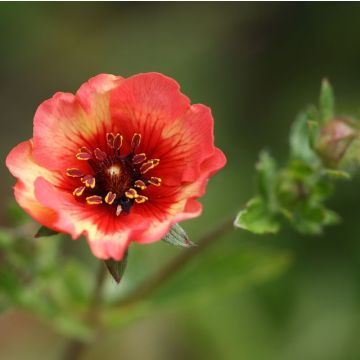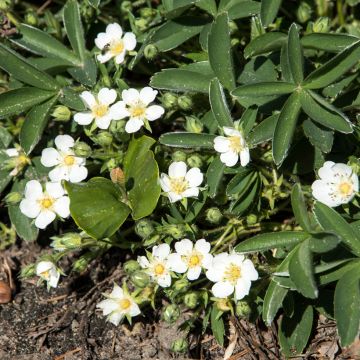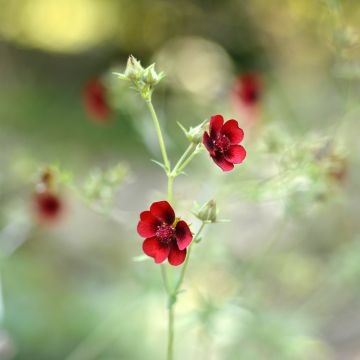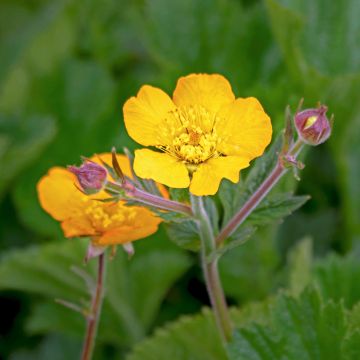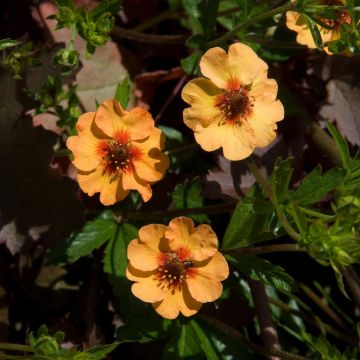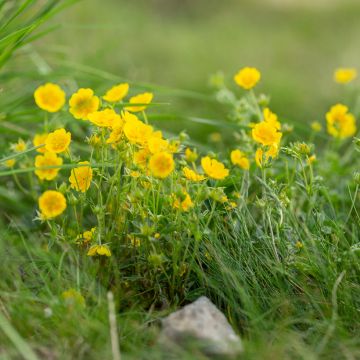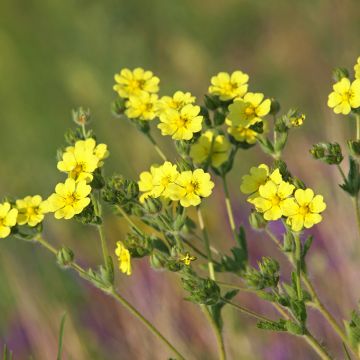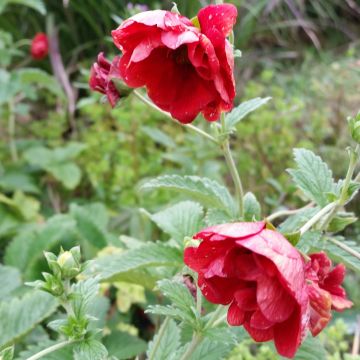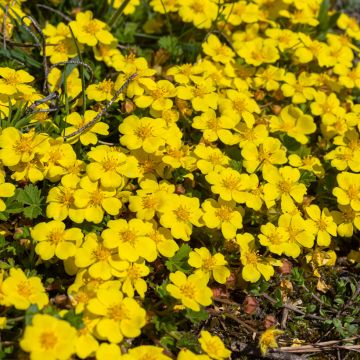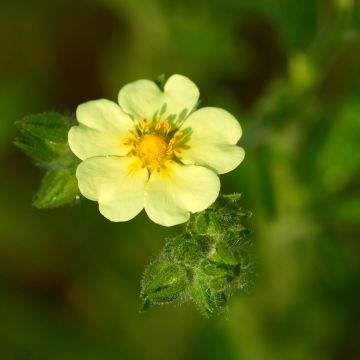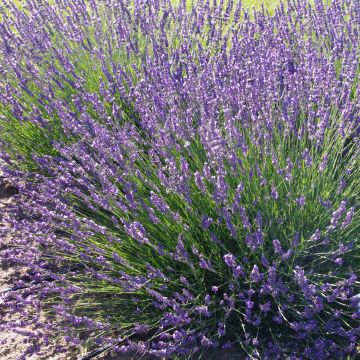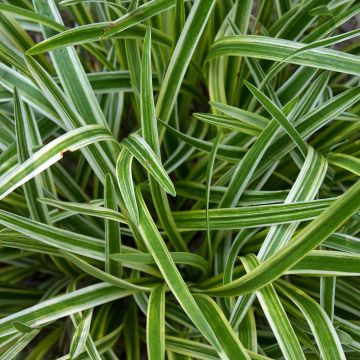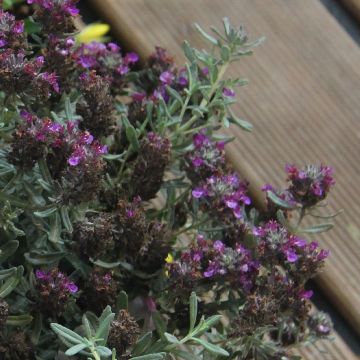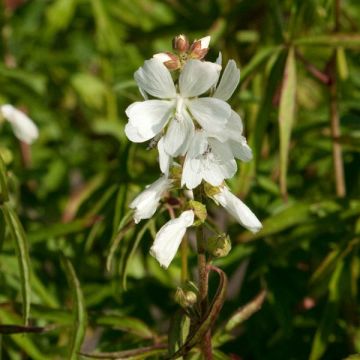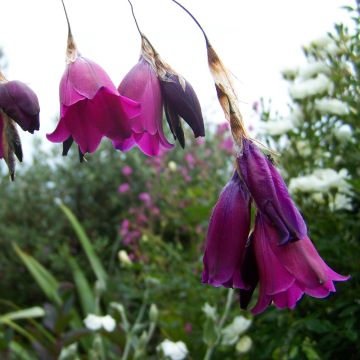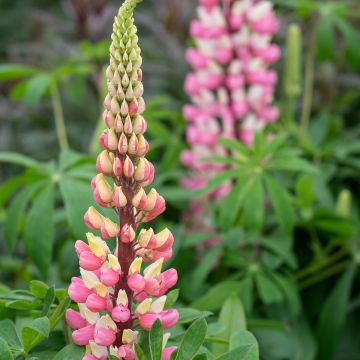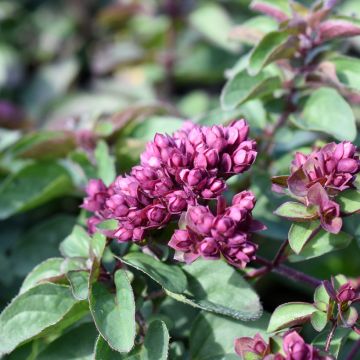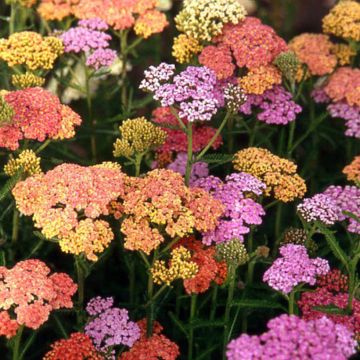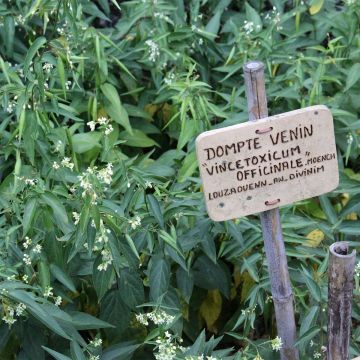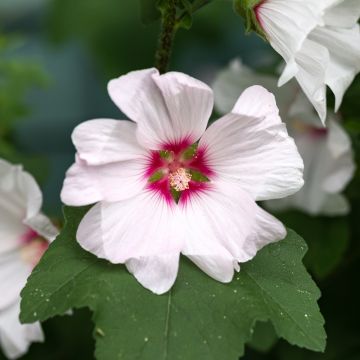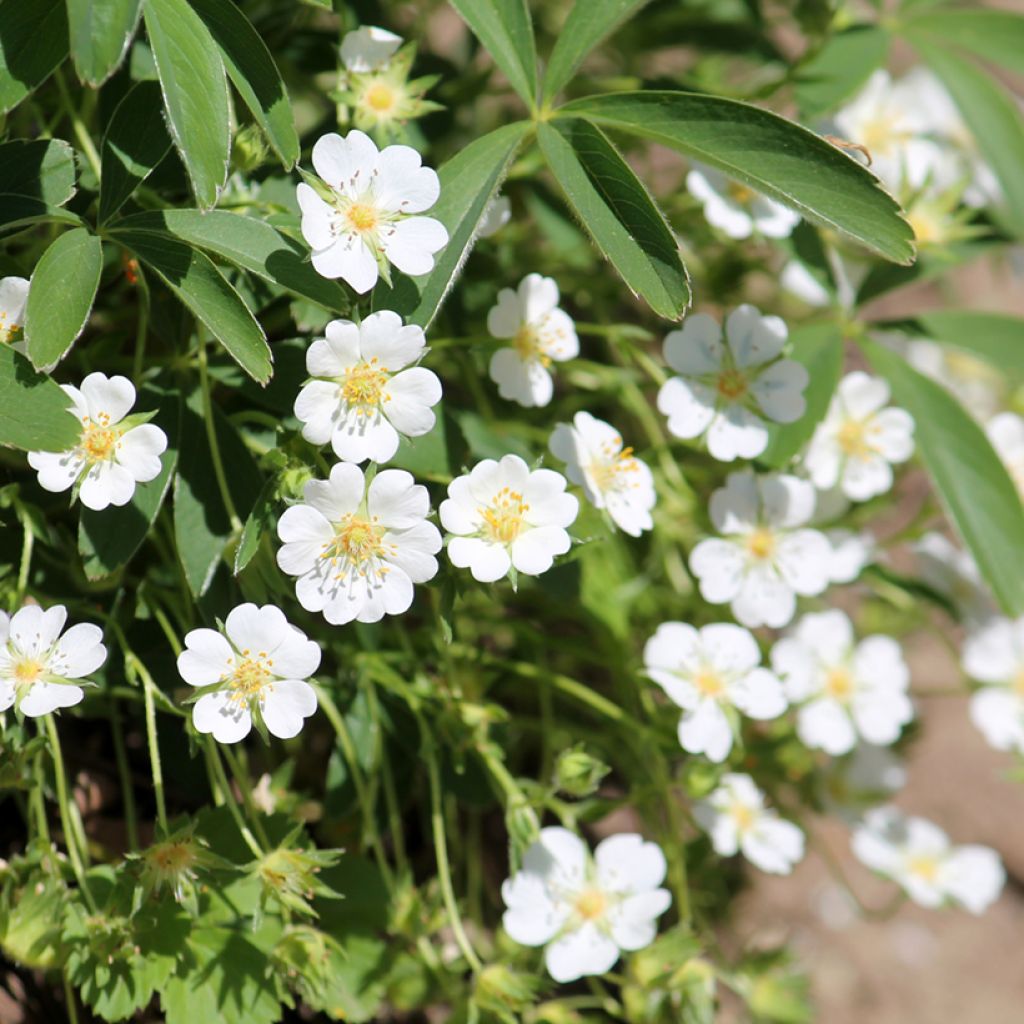

Potentilla alba
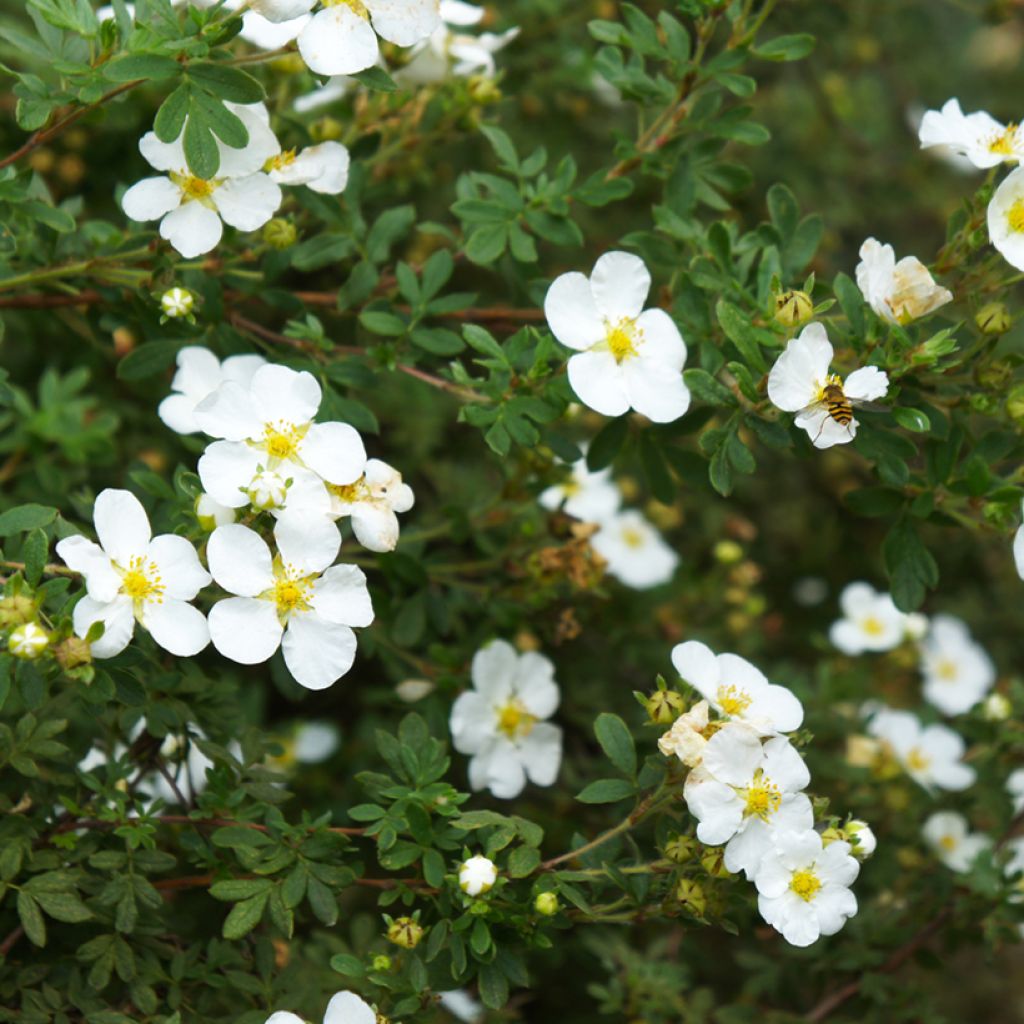

Potentilla alba
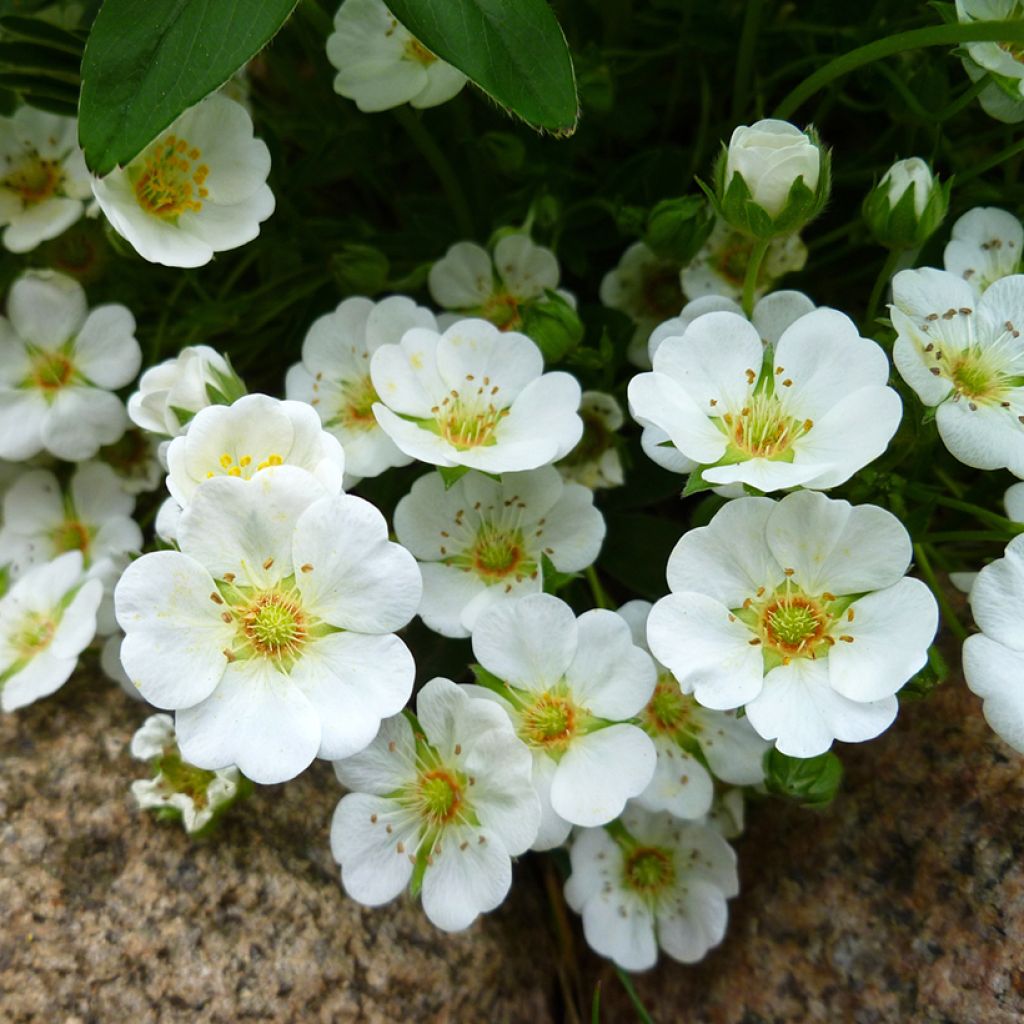

Potentilla alba
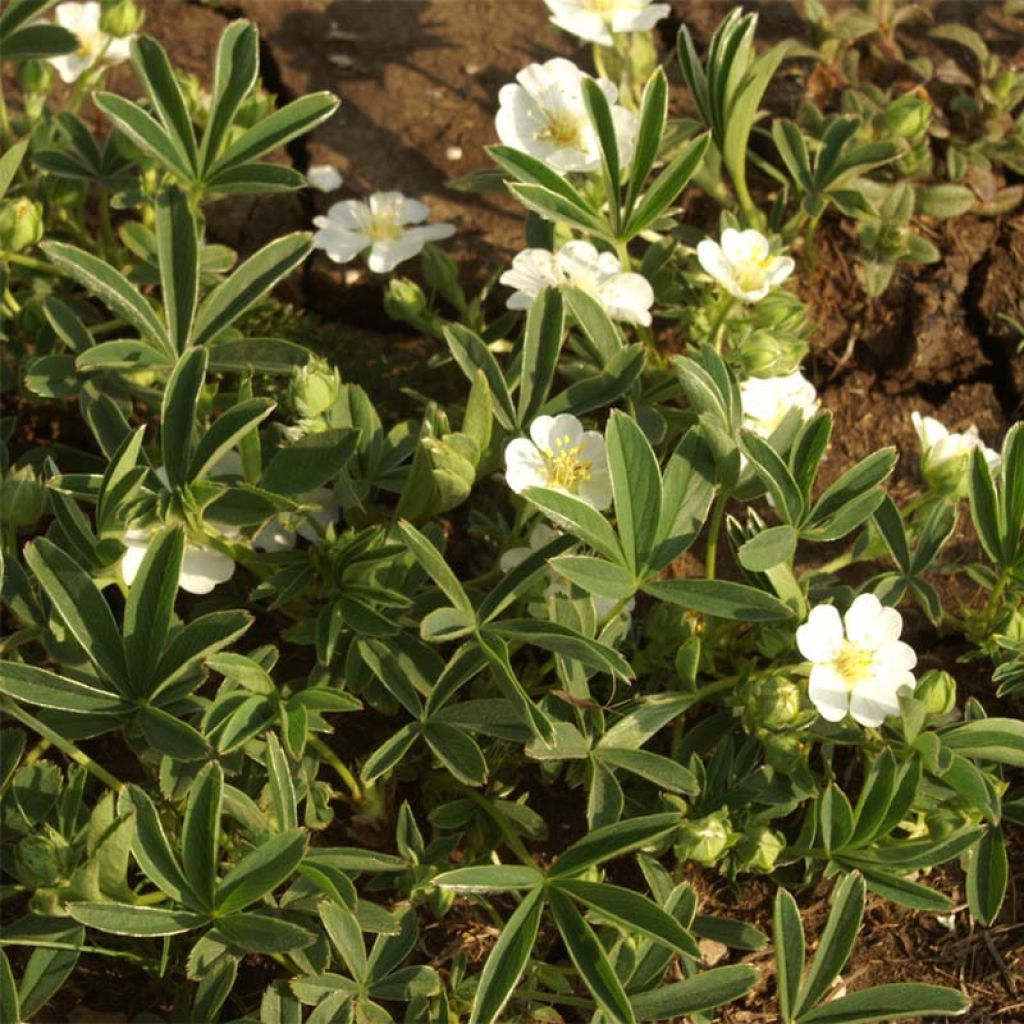

Potentilla alba
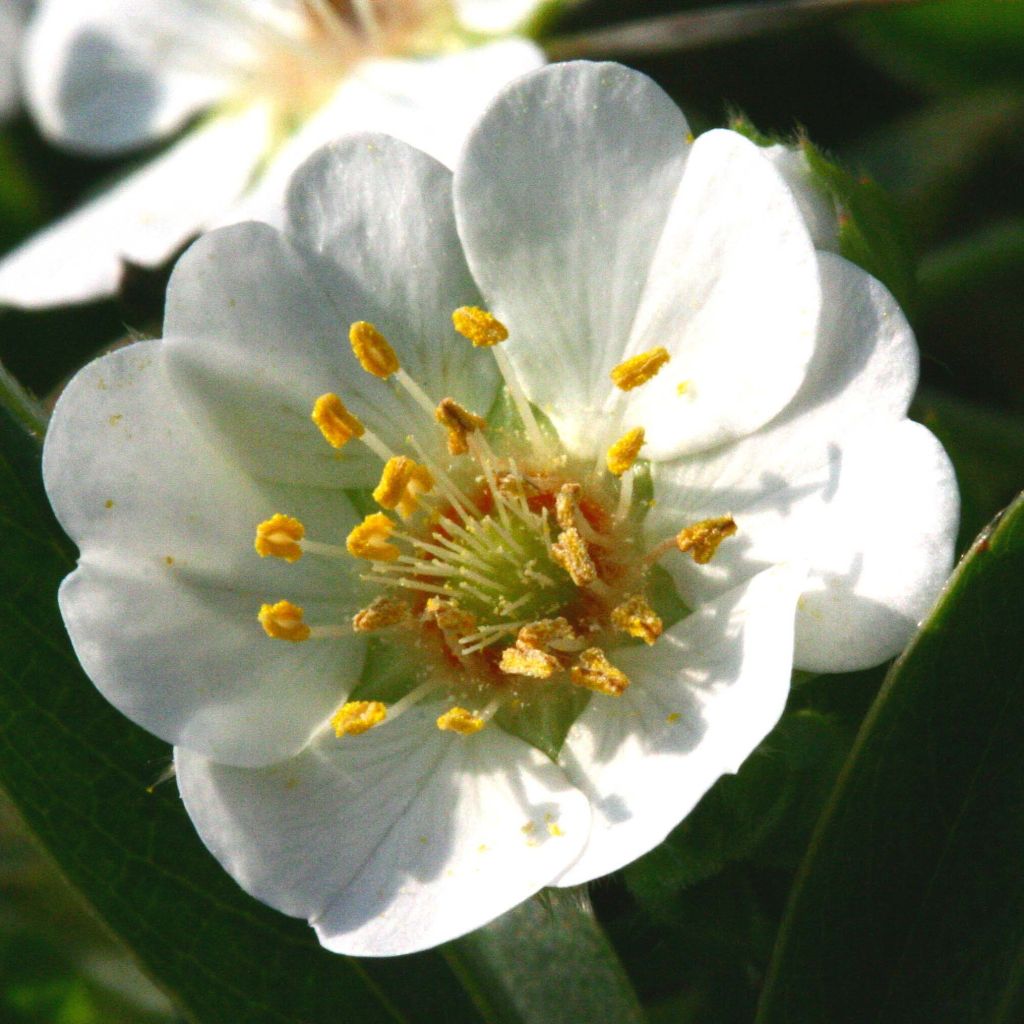

Potentilla alba
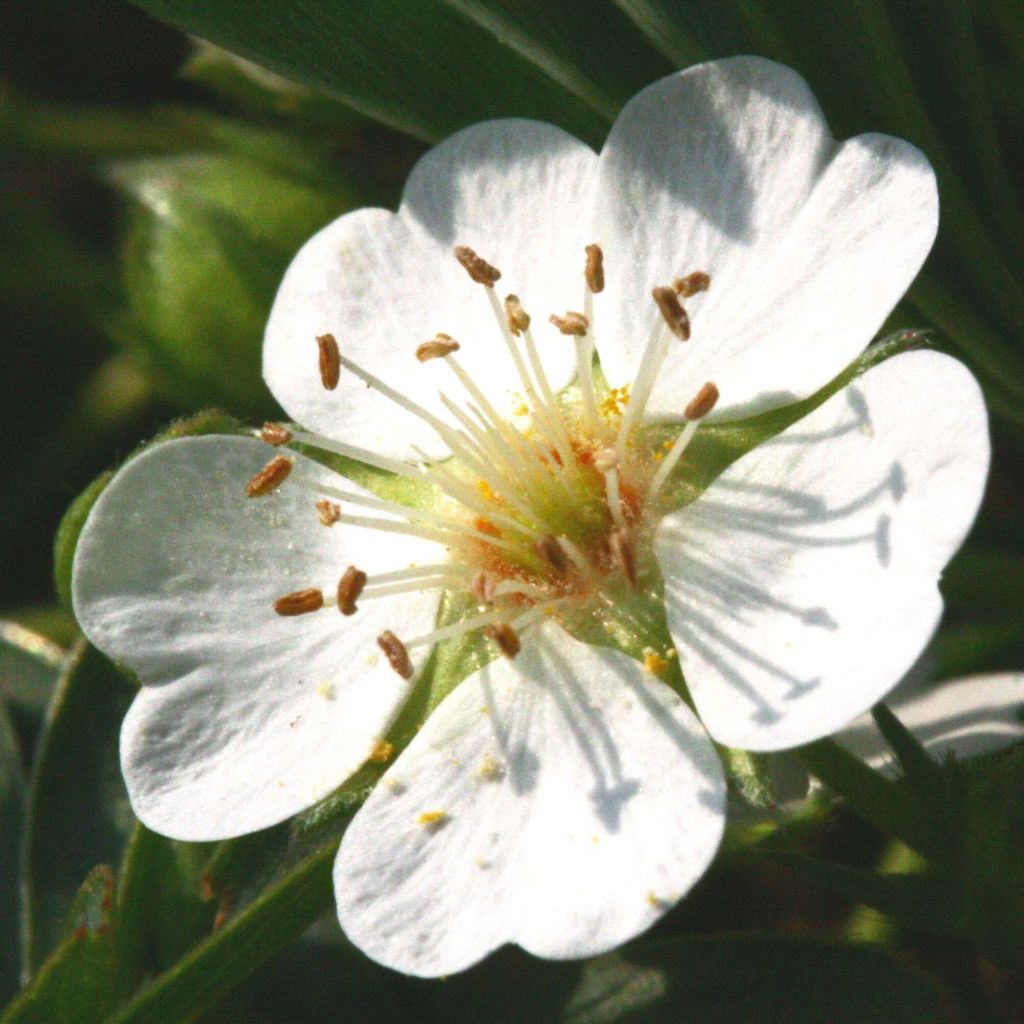

Potentilla alba
Potentilla alba
Potentilla alba
Potentilla, White Cinquefoil
This plant carries a 12 months recovery warranty
More information
We guarantee the quality of our plants for a full growing cycle, and will replace at our expense any plant that fails to recover under normal climatic and planting conditions.
From €5.90 for pickup delivery and €6.90 for home delivery
Express home delivery from €8.90.
Does this plant fit my garden?
Set up your Plantfit profile →
Description
Potentilla alba, also known as White Cinquefoil, is a botanical species widespread in mountainous areas in southern Europe. This small alpine perennial has a low and spreading habit, and blooms in summer, offering small white flowers in the shape of flat cups. They flourish on digitate and villous foliage, dark green on the upper side and silver on the underside, pressed against the ground. Its young spring shoots are beautifully silvered. This very hardy and deciduous species will thrive in a rockery or a wild garden, planted in a not overly dry, even calcareous, stony or clayey soil, in full sun.
Potentilla alba, along with strawberries, belongs to the Rosaceae family. Its natural habitat is mountainous, mostly composed of limestone meadows and open woods. It is a perennial plant with prostrate stems that forms a very low tuft, not exceeding 10 cm (4 in) in height, with a spread of about 30 cm (12 in). Its foliage is its main asset. In spring, young shoots covered with white bristles appear, giving them a beautiful silvery reflection. They unfold into leaves measuring 4 to 8 cm (2 to 3 in) in diameter, divided into 5 rectangular lobes also covered in bristles. The upper side of the lamina is a matte dark green, while the underside, covered in fuzz, is more whitish. In May-June, the plant produces inflorescences in the form of light panicles, composed of white flowers with 5 lobed petals, 2 to 3 cm (1 in) wide.
Potentilla alba is not a spectacular plant, but it has the charm of wild plants and is easy to grow in poor, calcareous or stony soils, as long as they are not too dry. It is a perfect plant for borders, in the company of paniculate saxifrages or small sedums. It is also very beautiful in rockeries, accompanied by pasque flowers, Waldsteinia ternata, Fragaria Pink Panda, grey artemisias, and teucriums, etc. It can also be associated with creeping gypsophila, Saponaria ocymioïdes, perennial geranium Philippe Vapel, garden valerian, and Dianthus erinaceus, etc.
Report an error about the product description
Potentilla alba in pictures
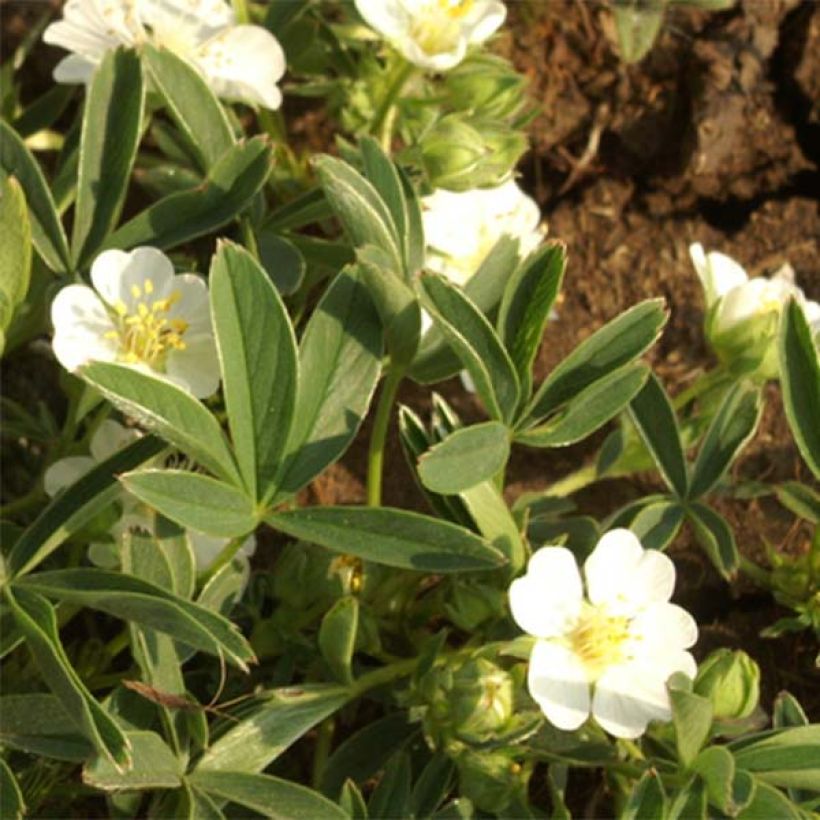

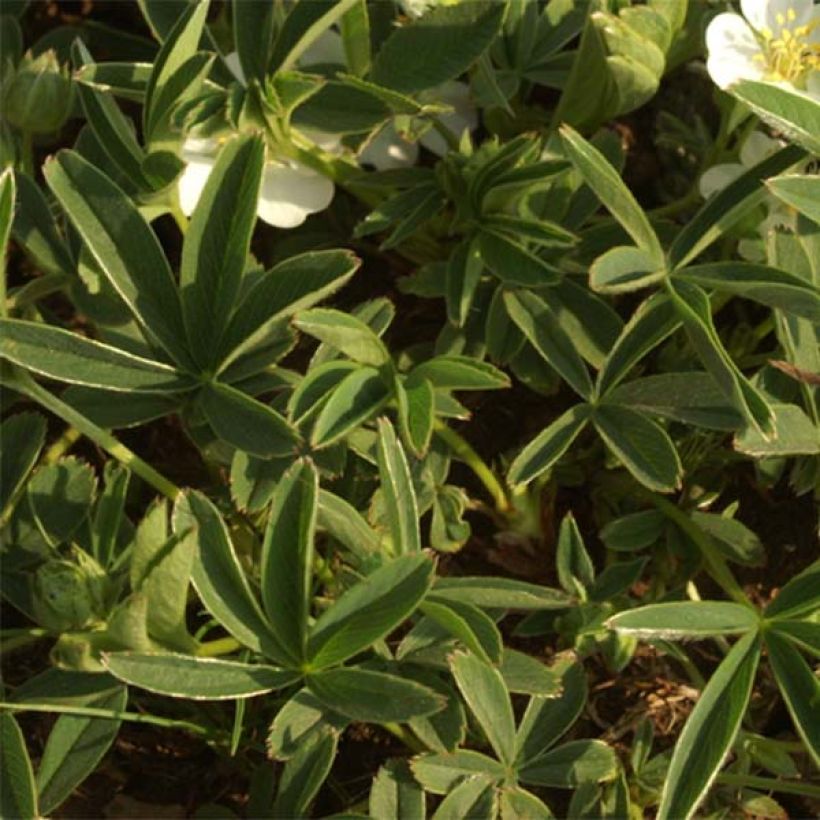

Flowering
Foliage
Plant habit
Botanical data
Potentilla
alba
Rosaceae
Potentilla, White Cinquefoil
Alps
Other Perennial Potentilla
Planting and care
Potentilla alba is a robust plant that is disease-free and easy to grow. It can be planted in any ordinary, well-drained soil and can adapt to poor, rocky and even limestone soils, as long as they are not too dry. This plant prefers sunny exposures, but excessive sunlight may scorch the foliage. A south-facing exposure or a shaded location during the hottest hours of the day, in a warm climate, will be very suitable.
Planting period
Intended location
Care
This item has not been reviewed yet - be the first to leave a review about it.
Summer flowering perennials
Haven't found what you were looking for?
Hardiness is the lowest winter temperature a plant can endure without suffering serious damage or even dying. However, hardiness is affected by location (a sheltered area, such as a patio), protection (winter cover) and soil type (hardiness is improved by well-drained soil).

Photo Sharing Terms & Conditions
In order to encourage gardeners to interact and share their experiences, Promesse de fleurs offers various media enabling content to be uploaded onto its Site - in particular via the ‘Photo sharing’ module.
The User agrees to refrain from:
- Posting any content that is illegal, prejudicial, insulting, racist, inciteful to hatred, revisionist, contrary to public decency, that infringes on privacy or on the privacy rights of third parties, in particular the publicity rights of persons and goods, intellectual property rights, or the right to privacy.
- Submitting content on behalf of a third party;
- Impersonate the identity of a third party and/or publish any personal information about a third party;
In general, the User undertakes to refrain from any unethical behaviour.
All Content (in particular text, comments, files, images, photos, videos, creative works, etc.), which may be subject to property or intellectual property rights, image or other private rights, shall remain the property of the User, subject to the limited rights granted by the terms of the licence granted by Promesse de fleurs as stated below. Users are at liberty to publish or not to publish such Content on the Site, notably via the ‘Photo Sharing’ facility, and accept that this Content shall be made public and freely accessible, notably on the Internet.
Users further acknowledge, undertake to have ,and guarantee that they hold all necessary rights and permissions to publish such material on the Site, in particular with regard to the legislation in force pertaining to any privacy, property, intellectual property, image, or contractual rights, or rights of any other nature. By publishing such Content on the Site, Users acknowledge accepting full liability as publishers of the Content within the meaning of the law, and grant Promesse de fleurs, free of charge, an inclusive, worldwide licence for the said Content for the entire duration of its publication, including all reproduction, representation, up/downloading, displaying, performing, transmission, and storage rights.
Users also grant permission for their name to be linked to the Content and accept that this link may not always be made available.
By engaging in posting material, Users consent to their Content becoming automatically accessible on the Internet, in particular on other sites and/or blogs and/or web pages of the Promesse de fleurs site, including in particular social pages and the Promesse de fleurs catalogue.
Users may secure the removal of entrusted content free of charge by issuing a simple request via our contact form.
The flowering period indicated on our website applies to countries and regions located in USDA zone 8 (France, the United Kingdom, Ireland, the Netherlands, etc.)
It will vary according to where you live:
- In zones 9 to 10 (Italy, Spain, Greece, etc.), flowering will occur about 2 to 4 weeks earlier.
- In zones 6 to 7 (Germany, Poland, Slovenia, and lower mountainous regions), flowering will be delayed by 2 to 3 weeks.
- In zone 5 (Central Europe, Scandinavia), blooming will be delayed by 3 to 5 weeks.
In temperate climates, pruning of spring-flowering shrubs (forsythia, spireas, etc.) should be done just after flowering.
Pruning of summer-flowering shrubs (Indian Lilac, Perovskia, etc.) can be done in winter or spring.
In cold regions as well as with frost-sensitive plants, avoid pruning too early when severe frosts may still occur.
The planting period indicated on our website applies to countries and regions located in USDA zone 8 (France, United Kingdom, Ireland, Netherlands).
It will vary according to where you live:
- In Mediterranean zones (Marseille, Madrid, Milan, etc.), autumn and winter are the best planting periods.
- In continental zones (Strasbourg, Munich, Vienna, etc.), delay planting by 2 to 3 weeks in spring and bring it forward by 2 to 4 weeks in autumn.
- In mountainous regions (the Alps, Pyrenees, Carpathians, etc.), it is best to plant in late spring (May-June) or late summer (August-September).
The harvesting period indicated on our website applies to countries and regions in USDA zone 8 (France, England, Ireland, the Netherlands).
In colder areas (Scandinavia, Poland, Austria...) fruit and vegetable harvests are likely to be delayed by 3-4 weeks.
In warmer areas (Italy, Spain, Greece, etc.), harvesting will probably take place earlier, depending on weather conditions.
The sowing periods indicated on our website apply to countries and regions within USDA Zone 8 (France, UK, Ireland, Netherlands).
In colder areas (Scandinavia, Poland, Austria...), delay any outdoor sowing by 3-4 weeks, or sow under glass.
In warmer climes (Italy, Spain, Greece, etc.), bring outdoor sowing forward by a few weeks.

































